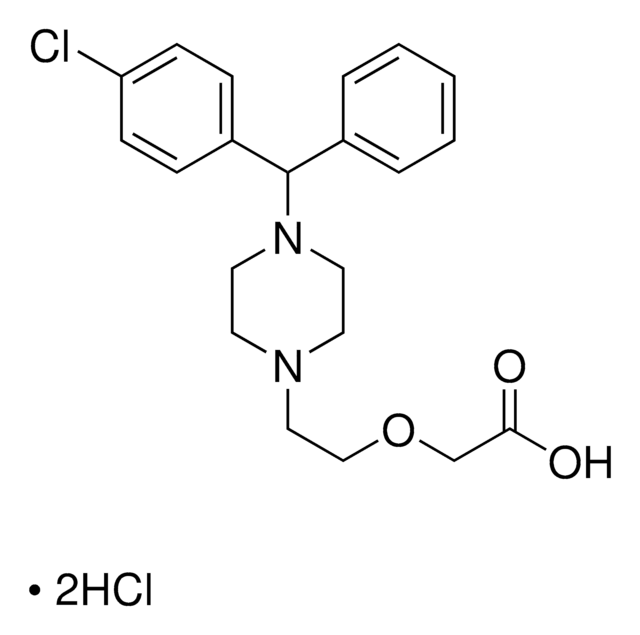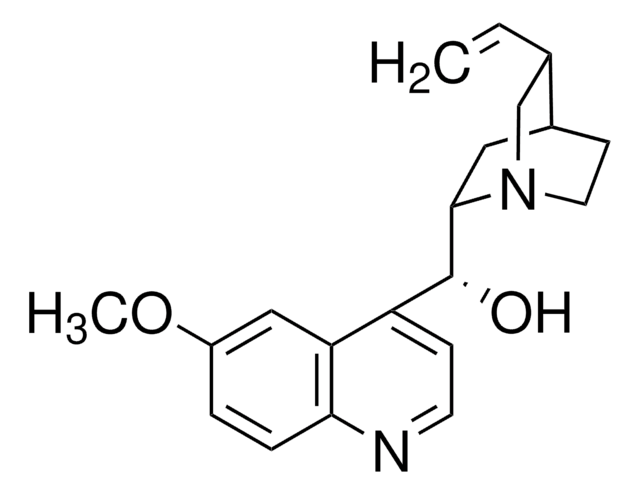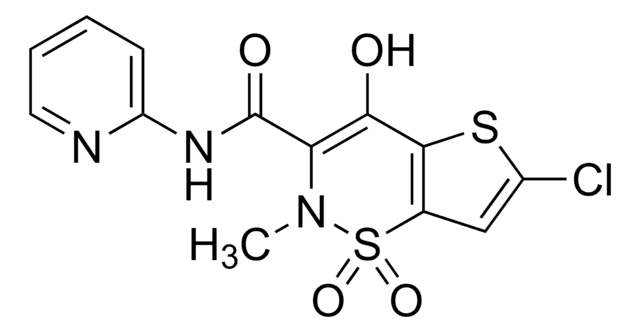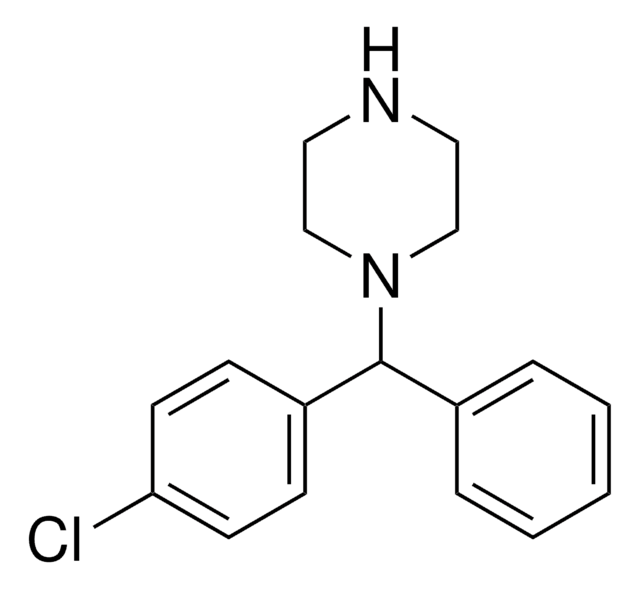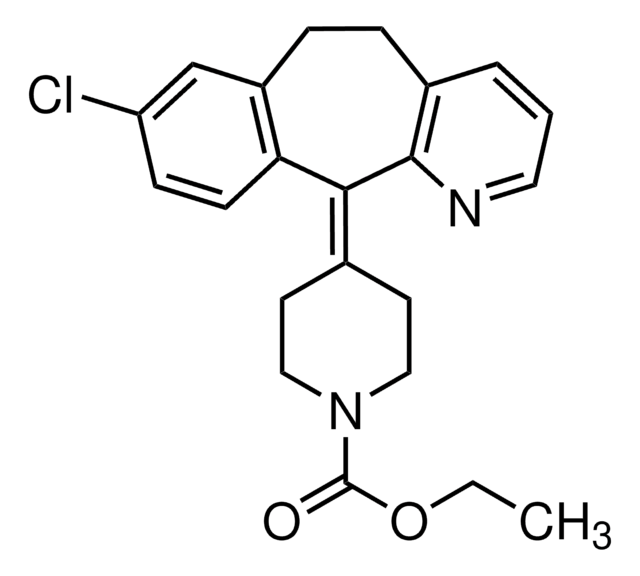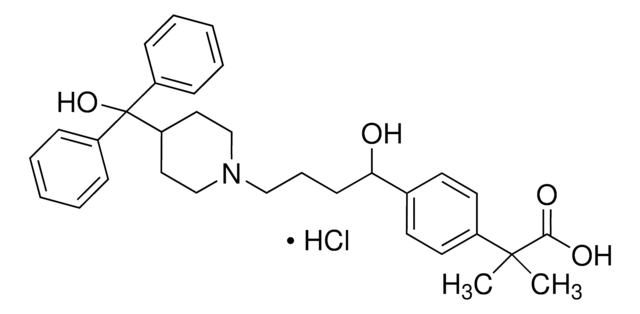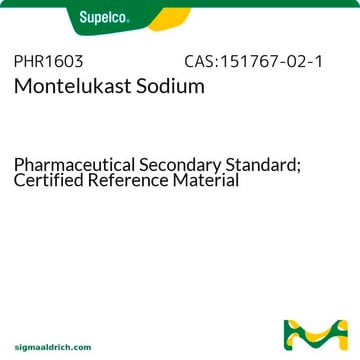L7795
Levocetirizine dihydrochloride
≥98% (HPLC)
Synonym(s):
Levocetirizine dihydrochloride, (-)-Cetirizine dihydrochloride; 2-[2-[4-[(R)-(4-chlorophenyl)-phenyl-methyl]piperazin-1-yl]ethoxy]acetic acid dihydrochloride
About This Item
Recommended Products
Quality Level
Assay
≥98% (HPLC)
form
powder
storage condition
desiccated
solubility
H2O: ≥23 mg/mL
storage temp.
room temp
SMILES string
Cl.Cl.OC(=O)COCCN1CCN(CC1)[C@H](c2ccccc2)c3ccc(Cl)cc3
InChI
1S/C21H25ClN2O3.2ClH/c22-19-8-6-18(7-9-19)21(17-4-2-1-3-5-17)24-12-10-23(11-13-24)14-15-27-16-20(25)26;;/h1-9,21H,10-16H2,(H,25,26);2*1H/t21-;;/m1../s1
InChI key
PGLIUCLTXOYQMV-GHVWMZMZSA-N
Gene Information
human ... HRH1(3269)
Looking for similar products? Visit Product Comparison Guide
General description
Application
Biochem/physiol Actions
Features and Benefits
Signal Word
Warning
Hazard Statements
Precautionary Statements
Hazard Classifications
Acute Tox. 4 Oral - Aquatic Acute 1
Storage Class Code
11 - Combustible Solids
WGK
WGK 3
Flash Point(F)
Not applicable
Flash Point(C)
Not applicable
Choose from one of the most recent versions:
Certificates of Analysis (COA)
Don't see the Right Version?
If you require a particular version, you can look up a specific certificate by the Lot or Batch number.
Already Own This Product?
Find documentation for the products that you have recently purchased in the Document Library.
Customers Also Viewed
Articles
We offers many products related to histamine receptors for your research needs.
Our team of scientists has experience in all areas of research including Life Science, Material Science, Chemical Synthesis, Chromatography, Analytical and many others.
Contact Technical Service